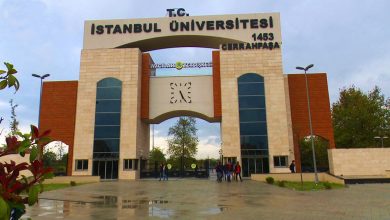Studying Medicine in Turkey

Studying Medicine in Turkey
Conditions for studying Medicine in Turkey
Every year, a large number of applicants from Iran and various countries come to Turkey to study medicine. The reasons for the widespread interest in studying this field in Turkey are as follows:
– Presence of Turkish universities approved by Iran’s Ministry of Health. This means that graduates from these universities can transfer to universities in Iran after completing a specific number of course units. Also, upon graduation from these universities, they can easily get their degrees recognized in Iran.
– Possibility of transferring to Iranian universities or returning to Iran for work or further study. Medical students graduating from Turkish universities can transfer to universities in Iran or, upon returning to Iran, can easily get their degrees recognized and work in hospitals or clinics.
– Job opportunities in Turkey. Medical graduates in Turkey can easily get employed in hospitals or clinics or even establish their own practices.
Thus, Turkey, by offering these facilities and opportunities, provides great attraction for students interested in studying medicine. Medicine is a high-income and popular field in Turkey and the world. The average income for this profession in Turkey is about 15,552 Lira per month, reaching a maximum of 33,268 Lira per month. These figures make many students pursue this field to achieve a stable career future and good income. These economic guarantees encourage students to accept any costs associated with studying medicine in Turkey.
Studying Medicine in Turkey continues for a duration of 6 years. During the study period, students are engaged in the following educational process:
1. In the first and second years, basic sciences are taught theoretically.
2. In the third year, students become familiar with diseases theoretically and practically.
3. In the fourth and fifth years, training is provided only practically.
4. In the sixth year, the final year of study, students are under practical training similar to physicians in university hospitals. At this stage, they essentially work and learn as a physician in hospitals.
To enter this field, applicants must first succeed in the university entrance exam. Entrance exams for studying medicine in Turkey are held in all cities across the country. These exams provide an opportunity for candidates to evaluate the necessary skills and knowledge for studying in one of the popular and valuable fields of medicine and to enter the relevant study program.
General conditions for entering the Medicine study program in Turkey are as follows:
1. Participate in the YOS exam (entrance exam for foreign students) or international “SAT” or “ACT” exams.
2. Have a high school diploma with an average above 18 and receive successful transcripts from high school.
3. Provide an English or Turkish language certificate or participate in university language preparation courses.
These conditions apply to all applicants, and individuals must pay special attention to these points to be able to enter the Medicine study program in Turkey. Studying medicine in Turkey requires preparing additional documents.
In addition to documents related to general conditions, applicants must also provide the following documents when registering at the university:
– Original and copy of transcript along with official translation and notarization/confirmation seal from Turkish representatives in the country of origin.
– Original and copy of diploma along with official translation and notarization/confirmation seal from Turkish representatives in the country of origin.
– Passport and identification documents and identity information.
– Results of the YOS exam or international ACT or SAT exams.
– Valid Turkish or English language certificates.
– Motivation letter.
These additional documents are necessary for completing the registration process for studying medicine in Turkey, and paying attention to their accurate and complete preparation is vital. For studying medicine in Turkey, the most important point is language. Most study programs in this field are offered in English. Therefore, applicants must have a valid language certificate for registration. These certificates can include TOEFL, IELTS, or PTE certificates. Also, students who intend to study in Turkish need a TOMER Turkish language certificate. For more detailed study and information, applicants can visit the website of the desired university or the language testing centers of the universities.
For studying medicine in Turkey, the most important step after university admission is obtaining a student visa.
Applicants must follow these steps:
1. Visit the website of the desired university in Turkey.
2. Consult with migration experts from reputable institutions.
3. Submit the necessary documents to the university to get admission.
4. Submit the completed student visa application form.
5. Submit the necessary documents to the Turkish embassy in Iran.
6. Schedule an interview day to obtain the student visa.
By following these steps and being informed of the most accurate guidelines, applicants can successfully obtain their student visa and begin their studies in Turkey. Before applying for a student visa for studying medicine in Turkey, be sure to prepare and collect all the required documents. This action not only ensures that all necessary conditions for obtaining a visa are met but also increases your chance of success in obtaining a visa for studying medicine.
Required documents include:
-Proof of financial means: Providing documents that demonstrate your financial ability to cover tuition and living expenses in Turkey.
-Applicant’s medical health certificate: Ensuring the physical and mental health status of the applicant for obtaining a visa.
– Academic documents and records: Providing all academic documents, certificates, and academic records of the applicant for evaluating previous education.
– Passport with necessary validity: Ensuring sufficient passport validity for the duration of study in Turkey.
– Certificate of no criminal record: Providing a document that shows the applicant has not faced any legal or criminal issues in the past.
– University acceptance letter: Receiving an acceptance letter from the desired Turkish university.
– Receipt of payment of fees: Providing the receipt for payment of document processing fees for obtaining a Turkish student visa.
Preparing these documents carefully and with necessary foresight will help you obtain your student visa without major problems and with a higher chance of success.
Cost of studying Medicine in Turkey without exam
In Turkey, the cost of studying in state universities is calculated in Turkish Lira, and in private universities, it is calculated in US Dollars. For studying in state universities, you need to participate in the YÖS entrance exam or the international SAT exam, but for private universities, you do not need to participate in an exam. Tuition fees for the medical field in state universities start from 100,000 Lira (approximately 200 million Toman) annually. In private universities that do not have an entrance exam, the cost of studying medicine starts from 15,000 USD (approximately 750 million Toman) annually and goes up to around 35,000 USD.
The conditions for studying medicine in Turkey are divided into two categories: state universities and private universities. To enter Turkish state universities, candidates must participate in the YÖS exam or the international SAT exam. The YÖS exam includes subjects such as mathematics, geometry, and intelligence. Also, the SAT exam, which is an international exam in English, is another option for candidates. To enter Turkish private universities and study medicine without needing an entrance exam, candidates only need to translate their diploma and transcript documents. They can send these documents to the zero to hundred apply team (Note: Literal translation of the Persian phrase) to get an acceptance letter from Turkish private universities for free. Students can study in Turkish and English at Turkish private universities. Applicants for studying medicine in Turkey must successfully pass one of the following two admission exams to enter university: YÖS exam or SAT exam. The choice between these two exists due to differences between universities; some universities accept the YÖS exam, while others prefer the SAT exam. Applicants must participate in one of these exams based on their university choice.
YÖS Exam
The YÖS exam is conducted by each university separately. A candidate who intends to study at a specific university must take that university’s YÖS exam and obtain their score in this exam. For example, to study medicine at Istanbul University, the candidate must participate in this university’s YÖS exam.
SAT Exam
The SAT exam for studying medicine in Turkey, which is held annually in 1000 global branches, is seeing an increase in participants. This exam is considered an assessment for students aged 18 and above and is one of the most important exams used for studying medicine in Turkey. For admission to some Turkish universities, including Gazi or Ankara universities, an SAT score is mandatory. The first part of the SAT exam includes intelligence and English language questions, while the second part is used to assess basic science knowledge. The average score in this exam for studying medicine in Turkey is around 1068, which changes every year. Each university may specify a minimum score for admitting students to the medical field, and the time of the exam also varies based on each university’s decision.
STS; Medical Equivalency Exam
The STS exam is used for the equivalency of general medicine and dentistry degrees and is used to determine the level of applicants for continuing education in the medical field or working as a physician in Turkey. This exam, unlike TUS which is designed only for the medical field, can also be used for the equivalency of degrees in other fields such as teaching and pharmacy.
TUS; Medical Specialization Entrance Exam in Turkey
After passing the SAT or YÖS exams and completing general medicine courses, candidates for studying medical specialization fields in Turkey must participate in the TUS exam and obtain a passing score. TUS is an exam specific to medical specialization students in Turkey and assesses students’ knowledge in the field of general medical information.
The Medical Specialization Entrance Exam in Turkey (TUS) is held every year in September and April (Shahrivar and Farvardin) in Ankara city, and its results are usually announced after about 24 hours. Candidates who can score at least 60 out of 100 will succeed in getting accepted into a medical specialization field in Turkey. Generally, medical universities in Turkey are divided into state and private categories. Students can register to study medicine in either category. The main difference between state and private universities is in the level of costs and required tuition fees. Tuition fees in private universities may be higher, but the admission conditions to these universities may be easier. However, some private universities in Turkey do charge reasonable tuition fees from students.
Best Medical Universities in Turkey
Below is a brief description of some of Turkey’s reputable universities:
Hacettepe University
– Hacettepe University is one of the most reputable universities in Turkey, located in Ankara.
– Establishment: This university was established in 1967 and is recognized as one of the top institutions for education and research in the country.
– Offers study programs in various fields, including medicine, humanities, engineering, and natural sciences.
– Has extensive international connections and attracts students from all over the world.
Istanbul University
– One of the oldest universities in Turkey and even the world, located in Istanbul city.
– History: This university dates back to 1453 and has played a significant role in the history of Turkish culture and science over many years.
– Some faculties and departments of this university are active in various fields of medicine, social sciences, and arts.
Ankara University
– A reputable and large university in Ankara with impressive historical and cultural roots.
– Specializations: This university has diverse faculties and departments, including medicine, social sciences, law, and engineering.
– Research Activities: Ankara University is also recognized as a research center.
Koç University
– A reputable private university in Turkey, located in Istanbul.
– Establishment: This university was established in 1996 and has quickly become recognized as a reputable institution in the field of higher education.
– Offers study programs in various faculties, including management, engineering, and social sciences. These universities, each with their unique features and facilities, provide educational and research services to students.
Academic degrees from Turkish universities are highly recognized and acceptable globally due to membership in the Erasmus and Bologna agreements. Therefore, graduates from various fields, including medicine, can easily present their degrees in European countries and even the USA.
To obtain a medical specialization in Turkey, applicants must have good English proficiency and skills in general medical sciences. Then, by participating in and passing the TUS and STS exams, they can join medical specialization programs in this country. These exams are held in April and September, and their results are announced after 24 hours. In Turkey, doctors and dentists are recognized as high-income professions. The income of these individuals varies depending on specialization, work experience, and location of service. On average, a doctor’s income is about 30,000 Lira per month, and the minimum income is about 15,000 Lira per month. Also, the salary of dentists in Turkey is usually about 35,000 Lira per month, and their minimum salary is about 25,000 Lira per month.







